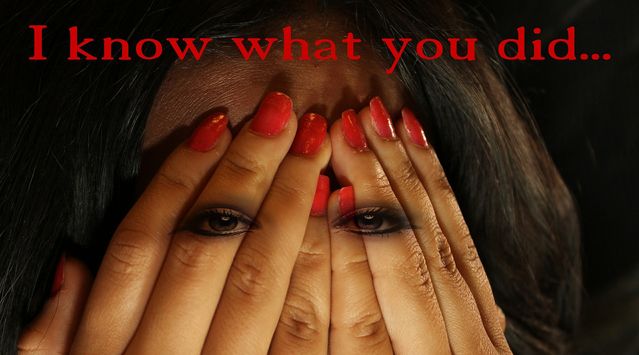
When an abuser denies his abuse, it invites others to conspire in his deception. In turn, this undermines how others perceive the victim’s reality, her chance to get help and her ability to be safe. The “he said, she said” scenario highlights a serious, ongoing problem for victims which we can no longer morally ignore.
Trump’s former White House secretary, Rob Porter, was finally held accountable for his domestic abuse. We recently learned that months ago his two ex-wives reported physical violence and psychological abuse to the FBI during Porter’s security clearance, but it ultimately did not prevent him from being welcomed into the highest inner circle of our presidency. Porter denies the accusations and Trump, even with clear legal evidence to the contrary, chooses to support him and not them.
Abusers Are Notorious for Denying their Abuse
During a group for women with controlling partners, a 33- year-old woman shared, “I took a picture of red marks around my neck from my husband choking me. I was hoping he’d finally own his abuse after seeing what he’d done and care enough to stop and get help. I couldn’t believe his response, ‘You clearly did that to yourself.’ ”
For those of us who are experts in the realm of domestic violence, we know only too well that abusers are notorious for not taking responsibility for their abuse and violence. A common characteristic of an abuser is to lie, bend right and wrong and distort information without any concern or empathy for the ones they hurt. So when we choose to believe his denial, we are disbelieving her. In the end, we enable the abuser who continues to abuse and intensify the pain and injury of victims.
From years of treating women who have endeared physical and/or psychological abuse by an intimate partner, the “he said, she said” outcome is devastating for them. Not only do women hear outright denial of the abuse from their partner, they also fear that once he claims it’s not true in public, they won’t be believed. Too often, this prevents women from seeking help to begin with. For some women, this fear is exacerbated when her partner’s public persona is favorable compared to his private, behind closed doors, hurtful behavior.
Abusers Claim to be Victims
The mindset of the abuser is that he’s in charge and expects his partner to be compliant. If a woman feels strong enough to bring up her concerns to her partner about his abusive behavior, he’s likely to not only deny it, but also frame her concerns as a personal attack. He believes she has no right to hold him accountable. When she does, the abuser makes himself out to be the victim and accuses her of being abusive to him.
Abused women don’t fabricate or exaggerate their abuse—in fact, it’s just the opposite.
Women who seek help for abuse by an intimate partner start in their own denial and minimization of the abuse they’ve endured—particularly psychological abuse that’s hard to see. To be hurt by the one they expected to care for and love them is almost unbearable to own. Through unpacking the painful reality of their experience, they come face-to-face with the ways they’ve been abused and the impact on their mental and physical health. This recovery process helps them heal and take back their life.
We need to take domestic abuse seriously and hear the women who have the courage to speak up so they can feel secure in finding safety from abuse for themselves and their families.
©CarolLambert


